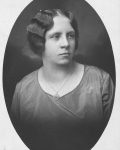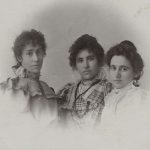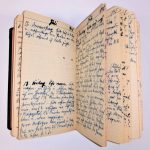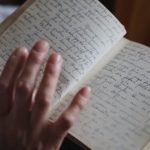 FFBIZ Berlin; Projektleiterinnen: Friederike Mehl und Lena Kühn (Web)
FFBIZ Berlin; Projektleiterinnen: Friederike Mehl und Lena Kühn (Web)
Das FFBIZ hat 2019 die Ergebnisse von zwei Interview-Projekten ins Internet gebracht.
Berlin in Bewegung: Aktivist*innen erzählen von der Frauen-/Lesbenbewegung seit 1968
Das Portal enthielt in erster Version Filmausschnitte von Zeitzeuginnen-Gesprächen mit fünf Frauen. Soeben wurden Filmclips von weiteren zwei Interviews online gestellt.
Die Frauen waren in der Frauenfriedensbewegung engagiert, in der nichtkirchlichen und der kirchlichen Frauenbewegung, in feministischen Arbeitskreisen und/oder in Lesbengruppen oder als Teil der sogenannten „Homosexuellenbewegung“ in Ost-Berlin. Neben den Filmclips enthält „Berlin in Bewegung“ auch biographische Texte und historische Dokumente: Link zu den sieben Interviews
Projektleitung: Friederike Mehl; gefördert mit Mitteln der Bundesstiftung zur Aufarbeitung der SED-Diktatur.
„Friedliche Revolution“? Lesbisch-feministische Perspektiven auf 1989
Den 30. Jahrestag der Maueröffnung hat das FFBIZ zum Anlass genommen, sich gemeinsam mit dem Spinnboden, dem zweiten großen Berliner Lesbenarchiv das Umbruchsjahr 1989 näher anzusehen (Link).
Diese Sammlung „Friedliche Revolution“ enthält Ausschnitte von Interviews mit sechs Frauen. Die interviewten Zeitzeuginnen berichten an die Zeit vor, während und nach 1989. Sie sprechen von politischen Bündnissen, Diskriminierung und ihrer Sicht auf die Erinnerungskultur heute. Eine Auswahl von Filmclips dieser Gespräche wurde im META-Katalog des ida-Dachverbandes online gestellt: Link zu den Interviews
„Friedliche Revolution“ ist ein Kooperationsprojekt mit dem Spinnboden Lesbenarchiv und Bibliothek; Projektleitung: Lena Kühn; gefördert vom Digitalen Deutschen Frauenarchiv (DDF) mit Mitteln des Bundesministeriums für Familie, Senioren, Frauen und Jugend (BMFSJ).
Das FFBIZ Continue reading









